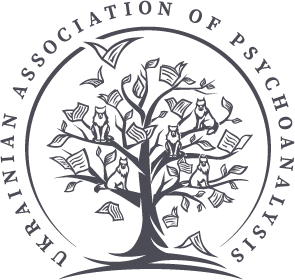Psychoanalysis is a method of clinical work aimed at studying the unconscious, cognizing the subject, transforming his psychic world.
This is a method of working with mental suffering through the comprehension and understanding of the unconscious processes and their relationship.
Sufferings, understanding that something is going wrong, and the desire to change all that most often lead to the psychoanalytic office.
The most common reasons to consult a psychoanalyst are depressions, anxiety and fear, lack of self-confidence, problems in relationships with loved ones, difficulties in establishing new relationships, sexual difficulties, recurring negative situations, obsessive thoughts, etc.
How to find your psychoanalyst? What should one focus on when choosing a psychologist? How to sort yourself out, to find your place in life and to understand which way to go next? President of the Ukrainian Association of Psychoanalysis Svetlana Uvarova will answer these and other questions: youtu.be/2jCcjn42hIc
Children come into analysis with specific problems and symptoms. In terms of psychoanalysis, all these symptoms resulted from individual history and are not universal. But we can talk about typical symptomatic manifestations of the subjective position taken by the child in a family situation or in educational institutions, where the child spends the largest part of his or her life. This is the cultural space that makes requirements of the child, i.e. social and sexual requirements which are imposed on the child and make him vulnerable, unprotected, that can be expressed in typical manifestations characteristic of childhood: developmental difficulties, phobias, enuresis, encopresis, speech disorders, mutism, elective mutism, school failures, etc. At the same time, the child does not come into analysis of his own free will, or because he wants to become an analyst, as is sometimes the case with adults. The child is brought by parents.
In this case, can we talk about pure psychoanalysis or some kind of psychotherapeutic application of psychoanalysis?
No matter how we perceive it, there is a certain ethical position of the analyst, to which any therapeutic goal in psychoanalysis is subjected. In other words, psychoanalytic practice makes it possible to distinguish between request, between what is expressed in the complaint, and the symptom itself. And this becomes possible when taking into account the difference between desire, request and demand.
Спасибо за обращение, сообщение успешно отправлено.
